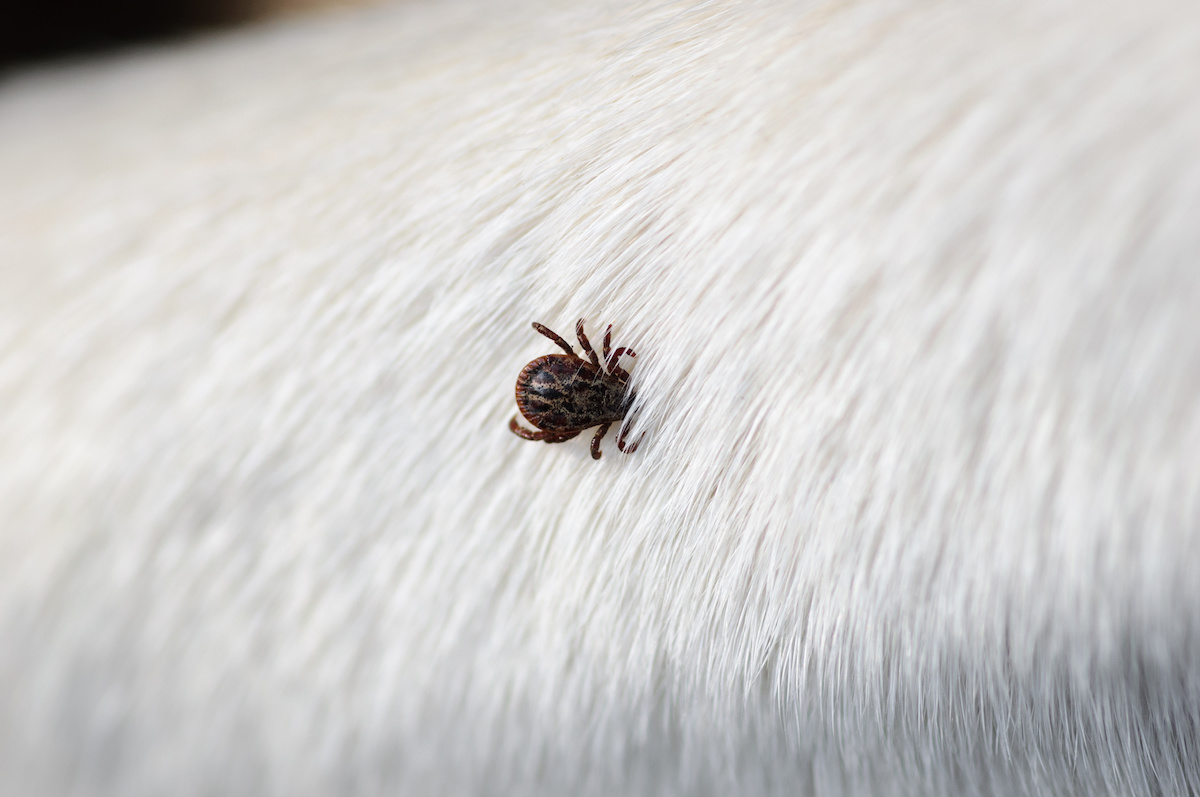Imagine your furry friend, Fluffy, frolicking joyously through fields and forests. Unbeknownst to him, microscopic foes, pet parasites, lie in wait. These tiny interlopers, whether ticks, fleas, or worms, latch onto Fluffy, turning him into their new home. They feast on him, triggering a range of health issues from simple itching to serious illnesses. With regular vet check-ups from Animal Care Center, and preventative treatments, you can safeguard Fluffy from pet parasites.
As a pet owner, it’s important to understand the dangers of pet parasites. These tiny creatures can easily latch onto your furry friend and cause a variety of health problems such as skin irritation, anemia, and even deadly diseases.
From fleas and ticks to heartworms and intestinal worms, taking preventative measures such as regular check-ups and parasite control can ensure your pet stays healthy and happy. Below, we’ll discuss some of the most common pet parasites and how to get rid of them.
Scratch, Itch, Bite: Fleas
Fleas are tiny, wingless insects that feed on the blood of animals, including pets. These pests are known for their quick and efficient life cycle. This allows them to reproduce and spread quickly. A flea infestation can cause significant discomfort and health problems for your pet.
If you suspect that your pet has fleas, look for these symptoms:
- Excessive scratching and biting
- Hot spots or bald patches on the skin
- Flea dirt (small, dark specks) on your pet’s fur
- Presence of fleas when combing through your pet’s fur
To prevent flea infestations, follow these tips:
- Regular grooming of your pet, including bathing and combing
- Keeping your pet’s environment clean and free of flea-friendly conditions
- Using flea preventatives, such as collars, shampoos, and medications, as recommended by your vet
- Regularly vacuuming your home and washing pet bedding
If you do find fleas on your pet, there are several effective treatment options available. Your vet can recommend the best course of action. Some options include topical treatments, oral medications, or a combination of both.
Lameness, Fever, Lethargy: Ticks
Ticks are blood-sucking parasites that can cause serious health issues for your pets. These arachnids have a four-stage life cycle: egg, larva, nymph, and adult. They feed on the blood of animals and humans during their active season, which is typically from spring through fall.
Tick tips to keep in mind:
- Ticks can transmit diseases like Lyme disease, Rocky Mountain spotted fever, and Ehrlichiosis, among others.
- Ticks prefer warm, moist areas of the body such as the ears, neck, and underbelly of pets.
- Symptoms of tick infestations in pets include fever, lethargy, loss of appetite, joint pain, and swollen lymph nodes.
How to prevent tick infestations:
- To prevent tick infestations, keep your pets away from tall grass, wooded areas, and leaf piles.
Check your pets regularly for ticks. Be sure to remove any you find promptly using tweezers or a tick removal tool.
- Remember to keep your pets on a regular parasite prevention regimen, including tick prevention, to keep them safe from these harmful parasites.
- To treat a tick infestation, consult with your veterinarian. They may recommend oral or topical medications to kill the ticks and prevent further infestations.
Cough, Fatigue, Weight Loss: Heartworms
Heartworms are a serious and potentially fatal parasitic infection that can affect pets. These worms can grow up to a foot long and live in the heart, lungs, and blood vessels of infected animals.
Here’s what you need to know about heartworms and how to prevent and treat their infestations:
- Heartworms have a complex life cycle that involves mosquitoes as the intermediate host.
- When a mosquito bites an infected animal, it picks up microfilariae (baby heartworms) from the bloodstream. These microfilariae mature into infective larvae within the mosquito.
- When the infected mosquito bites another animal, it deposits the infective larvae onto the skin. The larvae then enter the animal’s bloodstream and migrate to the heart and lungs.
Heartworm symptoms and prevention
It’s very important that you remain aware of heartworm symptoms. Dogs may only live about 6 months once they have heartworm. This is the amount of time that it takes for the worms to mature into adults. Signs and prevention tips to consider include:
- Symptoms of heartworm infestations in pets include coughing, fatigue, weight loss, difficulty breathing, and heart failure.
- To prevent heartworm infestations, keep your pets on a regular heartworm prevention regimen. This can include oral or topical medications that kill the microfilariae before they mature into adult worms.
- If your pet is diagnosed with heartworms, your veterinarian may recommend treatment options such as a series of injections to kill the adult worms.
- It’s important to keep your pets on a regular prevention regimen to ensure they stay healthy and safe from heartworms.

Vomiting, Pot Belly Appearance: Roundworms
These pet parasites are spread when a cat or dog eats infected feces. It can even spread by eating dirt that has traces of feces in it. Roundworms are a type of intestinal parasite that can affect pets, especially young puppies and kittens.
Meanwhile, these worms can grow up to several inches long and lay hundreds of thousands of eggs per day. Here’s what you need to know about roundworms and how to prevent and treat their infestations.
Roundworm prevention tips
- Keep your pets on a regular deworming regimen.
- Clean up after your pets and dispose of their feces properly to prevent contamination of the environment with roundworm eggs.
Roundworm treatment tips:
- If your pet is diagnosed with roundworms, your veterinarian may recommend treatment options such as deworming medication or supportive care for any secondary infections.
- Regular fecal exams can also help detect roundworm infestations early and ensure your pet stays healthy.
No Appetite, Weight Loss: Tapeworms
Tapeworms are long, flat parasites that live in the digestive system of animals, including pets. They are usually transmitted through ingestion of infected fleas or rodents that are carrying tapeworms. Meanwhile, tapeworms can cause a variety of health problems for your pet. It’s important to seek veterinary help if you suspect your cat or dog has tapeworm.
If you suspect that your pet has tapeworms, look for these symptoms:
- Visible tapeworm segments in your pet’s feces or around the anus
- Weight loss or lack of appetite
- Abdominal discomfort or bloating
- Scooting or licking of the anus
To prevent tapeworm infestations, follow these tips:
- Regular flea control for your pet
- Proper hygiene and disposal of pet waste
- Cook all meat thoroughly before feeding it to your pet
- Keep your pet away from wild animals and their feces
If your pet is diagnosed with tapeworms, your vet can recommend the most effective treatment option. This may include oral medications or injections, which will kill the tapeworms and allow your pet to recover.
Get Help with Pet Parasites from Animal Care Center
Prevention is always the best course of action for pet parasites. However, if treatment is necessary, please contact us at Animal Care Center. We can assist with both the treatment and prevention of pet parasites, ensuring a happy and healthy life for your dog or cat.






